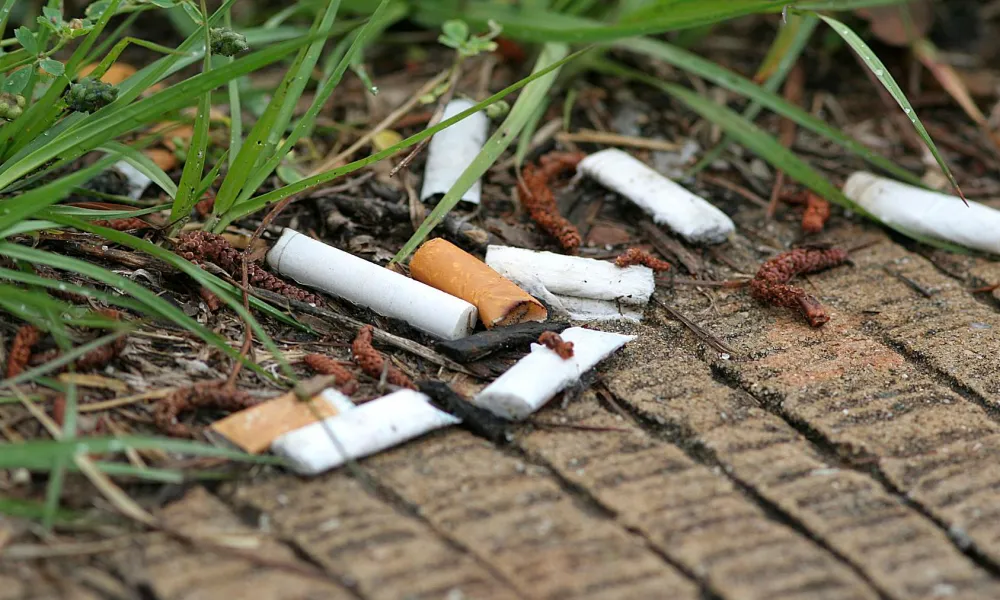Accountability
WHO warns of tobacco’s ‘devastating’ environmental impact

On Tuesday, the WHO said that tobacco is a far greater threat than many realize as it remains one of the world’s biggest polluters, from leaving mountains of waste to driving global warming.
The World Health Organization accused the industry of causing widespread deforestation, diverting badly needed land and water in poor countries away from food production, spewing out plastic and chemical waste as well as emitting millions of tonnes of carbon dioxide.
In its report released on World No Tobacco Day, the UN agency called for the tobacco industry to be held to account and foot the bill for the cleanup.
The report, “Tobacco: poisoning our planet,” looks at the impacts of the whole cycle, from the growth of plants to the manufacturing of tobacco products, to consumption and waste.
The findings are “quite devastating,” Ruediger Krech, WHO director of health promotion, told AFP, charging that the industry is “one of the biggest polluters that we know of.”
Krech went onto slam tobacco companies’ frequent efforts to rehabilitate their image through beach cleanups and funding environmental and disaster relief organisations as “greenwashing.”
“The tobacco industry dumps toxic waste into communities and depletes natural resources,” he told a press conference. “Tobacco is not only poisoning people, it’s poisoning our planet.”
“Roughly 4.5 trillion cigarette filters pollute our oceans, rivers, city sidewalks, parks, soil and beaches every year,” Krech adds.
Each filter that is carelessly thrown away can pollute up to 100 litres of water. Germany spends more than €180 million (US $191 million) on cleaning up littered tobacco products each year.
And the cost of cleaning up littered tobacco products often falls on taxpayers – not the industry causing the problem. China spends around €2.4 billion ($2.5 billion) every year and India roughly €714 million ($760 million) to pick up these items.
Up to a quarter of all tobacco farmers contract so-called green tobacco sickness, or poisoning from the nicotine they absorb through the skin. Farmers who handle tobacco leaves all day consume the equivalent of 50 cigarettes worth of nicotine a day, Krech said. This is especially worrying for the many children involved in tobacco farming.
Most tobacco is grown in poorer countries, where water and farmland are often in short supply, and where such crops are often grown at the expense of vital food production, the report concluded.
Terry A. Hurlbut has been a student of politics, philosophy, and science for more than 35 years. He is a graduate of Yale College and has served as a physician-level laboratory administrator in a 250-bed community hospital. He also is a serious student of the Bible, is conversant in its two primary original languages, and has followed the creation-science movement closely since 1993.
-

 Accountability3 days ago
Accountability3 days agoWaste of the Day: Principal Bought Lobster with School Funds
-

 Civilization23 hours ago
Civilization23 hours agoWhy Europe Shouldn’t Be Upset at Trump’s Venezuelan Actions
-

 Executive2 days ago
Executive2 days agoHow Relaxed COVID-Era Rules Fueled Minnesota’s Biggest Scam
-

 Constitution3 days ago
Constitution3 days agoTrump, Canada, and the Constitutional Problem Beneath the Bridge
-

 Christianity Today22 hours ago
Christianity Today22 hours agoSurprising Revival: Gen Z Men & Highly Educated Lead Return to Religion
-

 Civilization2 days ago
Civilization2 days agoThe End of Purple States and Competitive Districts
-

 Executive1 day ago
Executive1 day agoWaste of the Day: Can You Hear Me Now?
-

 Civilization5 days ago
Civilization5 days agoThe Conundrum of President Donald J. Trump


